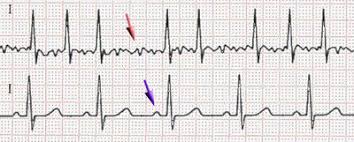MedicalResearch.com Interview with:
Rozalina McCoy, M.D
Assistant Professor of Medicine
Division of Primary Care Internal Medicine
Department of Medicine
Mayo Clinic Rochester
MedicalResearch.com: What is the background for this study?
Dr. McCoy: Hypoglycemia is a serious potential complication of diabetes treatment; it worsens quality of life and has been associated with cardiovascular events, dementia, and even death. Most professional societies recommend targeting HbA1C levels less than 6.5% or 7%, with individualized treatment targets based on patient age, other medical conditions, and risk of hypoglycemia with therapy. Treating patients to very low HbA1c levels is not likely to improve their health, especially not in the short-term, but can cause serious harms such as hypoglycemia. The goal of our study was to assess how frequently patients with type 2 diabetes are treated intensively, focusing specifically on patients who are elderly or have serious chronic conditions such as dementia, kidney disease including dialysis need, heart disease, stroke, lung disease, and cancer. Moreover, while prior studies have suggested that intensive treatment may be common, there was no strong evidence that intensive treatment does in fact increase risk of hypoglycemia. Our study was designed specifically to assess this risk.
We examined medical claims, pharmacy fill data, and laboratory results of 31,542 adults with stable and controlled type 2 diabetes who were included in the OptumLabs™ Data Warehouse between 2001 and 2013. None of the patients were treated with insulin or had prior episodes of severe hypoglycemia, both known risk factors for future hypoglycemic events. None of the patients had obvious indications for very tight glycemic control, such as pregnancy.
“Intensive treatment” was defined as being treated with more glucose-lowering medications than clinical guidelines consider to be necessary given their HbA1C level. Patients whose HbA1C was less than 5.6 percent (diabetes is defined by HbA1C 6.5 percent or higher) were considered intensively treated if they were taking any medications. Patients with HbA1C in the “pre-diabetes” range, 5.7-6.4 percent, were considered to be intensively treated if using two or more medications at the time of the test, or if started on additional medications after the test, because current guidelines consider patients with HbA1C less than 6.5 percent to already be optimally controlled. For patients with HbA1C of 6.5-6.9 percent the sole criteria for intensive treatment was treatment intensification with two or more drugs or insulin.
The patients were separated by whether they were considered clinically complex (based on the definition by the American Geriatrics Society)—75 years of age or older; or having end-stage kidney disease, dementia; or with three or more serious chronic conditions. This distinction has been made to help identify patients for whom adding glucose-lowering medications is more likely to lead to treatment-related adverse events, including hypoglycemia, while not providing substantial long-term benefit.
(more…)




